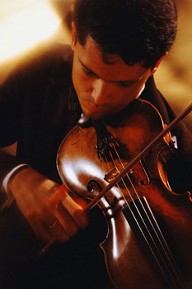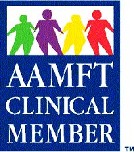Growing A Couple's Loving Relationship
Article 6. So Easy To Get Married But So Hard To Stay Married (Happily)
By Reuben E. Gross M.A., M.S., PhD, ABP, ABBP, FAACP, LMFT
For a free 15 minute consultation call me at:
Office Phone: (201) 836-2737
Cell Phone: (201) 218-3112
Office Address: 1299 Wellington Avenue, Teaneck, NJ 07666
 |
Introduction: The theme of this article is that individuals go into marriage without knowing what they are getting into. Our educational system fails to prepare our citizens as to the problems they might face in marriage, much less give them the skills to cope with them should they arise… and they do. Is it any wonder that so many marriages fall apart?
The article highlights the importance of training individuals as early as possible, even beginning in childhood, to interact healthfully with others and to develop emotional intelligence which will stand with them for the rest of their lives. The article also proposes free screening for couple compatibility, free premarital training, and even free “on the job” training for a marriage’s first three years, to help couples develop a healthy and happy relationship ---all at governmental expense. The article also offers ideas on help that is available today for couples who wish to improve their relationship.
|
Please note: For the sake of simplicity in this article, I generally use the term “marriage” and “spouse.” In fact, all of my points are equally applicable to any couple in an exclusive relationship; similarly, “he” and “she” are interchangeable.
It Takes Training, Supervision and Practice to Develop a Skill
|
It is universally understood that without education in reading and writing an individual would be illiterate…that it takes instruction and practice to play a musical instrument…that it would be foolhardy to jump into deep water if you never had a swimming lesson or drive a car without prior instruction and practice… In short, people do not achieve competence in any difficult skill by wishful thinking or by osmosis. How many of us would step into a plane if the pilot never went to flight training school, never flew a plane, and intended to learn flying by trial and error with us as passengers on this voyage… undoubtedly his first and last. The answer is obvious. So why do we assume that no preparation or training is necessary for that most complicated of challenges: marriage?
|
 |
Why are we so willing to take a gamble when it comes to marriage, even though we know that the marriage “licensing” process tells us nothing about the competencies of our prospective mate. When it comes to marriage we play by different rules. Is it any surprise that 50% of U.S. marriages end up in divorce?
Why is Marriage Different?
When “Joe” and “Joyce” decide to become exclusive, would it ever occur to either of them to demand evidence from their prospective partner that they have training, experience and documented proof of competence at being a caring and loving partner and that he/she truly understands the responsibilities of being a good spouse? Of course not. Would they ever think of asking for assurance that he/she is also open-minded enough to take courses, instruction or couple/marriage counseling should they get off the track at some future point? Same answer.
The fact is that we jump into marriage and make ourselves vulnerable by putting our happiness into the hands of another without asking for documented proof of competence. But marriage is no different than flying or surgery; marital skills need to be learned and those who choose marriage need to be competent at fulfilling the role. But how many people fit into that category?
The Role of Biological, Psychological And Sociological Factors in Decision Making
In view of the fact that we are so very cautions when we make other important decisions, why do we ignore our usual precautions when it comes to marriage? Are we so intoxicated by the hormonal surge of sexual attraction, the wonders of the being in love experience and our hopeful fantasies of the future that we minimize and sometimes ignore the hardcore rational thinking processes that we use when making so many other very important decisions? True, many individuals do consider and consciously evaluate a number of important factors when choosing a partner. But it is also true that many attribute too much weight to how much fun they have with each other and how well they get along during the dating period, when they are both excited about the relationship and happy to please each other with their best behavior. Many people consider the “I’m in love” feeling an indisputable reason that this is the right person for them. They fail to consider that dating and marriage are two different experiences.
Having conducted numerous premarital groups for young couples in love, I have found that it is very difficult for many of them to conceive that they might --much less will-- have problems with each other in the future. At times, even when individuals are aware of problems in the relationship, they expect that marriage will cure them. Nor do they give thought to the possibility that as the years go by more problems will raise their ugly head.
Yes, I am very much in touch with the reality of the progressive stages in today’s dating/exclusive relationship, and premarital practices. And I am sadly aware that following a suggestion that a couple become exclusive to each other (which sometimes takes place after the first date!), it would be considered gauche and even absurd for either party to demand from the other written proof of training and supervised experience in establishing and maintaining a caring and loving relationship. Among inexperienced couples, such competencies are either taken for granted (because they are considered innate?), or worse, not even thought about.
At the other end of the spectrum are those who have been burnt, or know others who have been burnt and are very much aware of the complications of marriage and push it off for years. But even within these groups, it doesn’t occur to these individuals to demand training or proof of competence since this is not the norm among couples of any level of experience. So why am I bothering to ask these rhetorical questions about demanding training and competence from your friend before you agree on an exclusive relationship? Well, I want to make a point.
 |
Society’s Tolerance For Failed Marriages is Extraordinary
Can you imagine what outrage, and call for action there would be? If all cars, buses and planes had a 50% chance of malfunctioning and inevitable crash during their life? If 50% of buildings and bridges collapsed within their first 1--30 years? Under those circumstances who would ever undergo an operation, step into a building, cross a bridge or enter a vehicle, much less with all the pomp and ceremony that accompanies a typical marriage?
|
Understandably, “society” would not stand for it, and Congress would be besieged by millions demanding solutions. And yet, surprisingly and so very sadly, this same society stands by watching an epidemic of marital failures. Nobody complains to their federal senators or representatives, state senators, or assembly persons, governors, mayors, local board of education, clergy or anybody else! There is tremendous hurt, harm and aggravation that all of these failed marriages and court battles do to the disappointed partners, their children, family members and close friends. There are also measurable effects on the individuals’ productivity, and behavior that can affect their job performance, as well as their daily interactions with others. Noticeable too, are the psychological effects on the children which can affect them adversely for years to come. Additionally, there may be social and financial costs to society.
Clearly in today’s society, we consider marriage a very personal matter, and we accept the irrational thinking that training and formal preparation for marriage is: a) unnecessary and b) certainly not an obligation of society to its citizens. How long will we go on thinking this way?
Is Jumping Into The Unknown Responsible Behavior On The Part Of An Individual?
An Educational Challenge to Society: Making The Unknown Known
Humans are born with zero skills to survive in this world, much less to tackle the complicated challenges of normal adult human interaction. But even long after individuals develop adequate self sufficiency and many social skills, they are still quite illiterate when it comes to the great challenge of managing a marital relationship. Although it is generally assumed that the two individuals are at fault when a marriage flounders or fails, I propose that part of the blame should be laid at the foot of society because of its failure to provide an education for marriage. It has been my belief for many years, that society shortchanges its marriage-hopefuls by failing to teach, advise and prepare them for what they’re getting into. We fail to notify them that “they got married and lived happily ever after” takes place in fairy tales, but in real life, marriages are a very different story.
When a person buys a piece of property and wishes to build a home, he must submit an architect’s plan for the house in order to get public approval before the first shovel hits the ground. But even if he gets approval, he still doesn’t have a house. He has to hire a contractor and begin building brick by brick. In contrast, to get married, one needn’t show plans or goals. It is so easy to slip from single status to marital status; but once married, one doesn’t have a marriage. A marriage is a relationship. It has to be built brick by brick; most people don’t consider this, nor do they know what bricks they need. nor how to put them together.
It is hard to stay married (happily) because consciously we mistakenly believe that getting married is all we have to do, and the rest will come naturally. We were never taught that building a good marriage requires continuous involvement in a series of complex tasks which can only be accomplished with excellent communication skills and a host of emotional competencies.
The Need For Sensitivity Training And The Development Of Emotional Intelligence As a Basis For Healthy Social Interaction
Clearly, a conscious understanding of one’s own feelings and needs in a relationship, the ability to express them constructively, and sensitivity and care for others’ feelings and rights, are the basis of intelligent and friendly human interaction. These competencies serve as the infrastructure of a good marriage and are an absolute necessity. Further, unless each spouse understands the panorama of emotional, conversational, intellectual, social, affectionate, physical, familial and other needs and wishes of the other person, how can he possibly throw himself into the process of making his partner happy? For more on this, please click here for my article on “The Hidden Agenda in Marriage.”
When Should Training Begin?
Training for competence in human relationships should begin in kindergarten with a focus on peers, teachers, siblings, parents, etc. and continue at an increasingly sophisticated level right through every grade of school. Fortunately, many sensitive and emotionally aware teachers and guidance counselors in elementary and middle schools, already do this informally.…but their efforts are scattered and few teachers follow formal curriculums. In fact, such curriculums do exist and are described by Daniel Goleman, PhD in his book “Emotional Intelligence.”
Dr. Goleman’s book is not only an extremely valuable “read” for mental health providers, but should also be read (and studied) by every adult, especially: spouses, parents, teachers, principals, coaches of childrens’ sport teams, and all others who deal with people, i.e. everybody. Sadly, formal education for emotional sensitivity, or the “emotional intelligence” espoused by Goleman, does not exist in the normal course of a child’s education in elementary, middle or high school, nor in college.
The overwhelming majority of us “full-fledged” adults are busy going about our daily business, and developing ourselves in numerous other important ways --to the neglect of our emotional intelligence. So when and how are we going to get the basic preparation and skills necessary to accomplish a successful marriage? Interestingly, Goleman’s concept of “Emotional Intelligence” has begun to enjoy popularity in a number of Ivy League graduate school programs. Traditionally, the academic world selected students on the basis of the intellectual part of their personality. For centuries, imparting information, widening intellectual horizons and (more recently) developing reasoning skills have been the core of academic goals for their students. Consequently, select colleges and graduate schools routinely screen applicants as much as possible for IQ, i.e., intellectual traits, via standardized tests such as the SAT, GRE, MCAT etc.
But there is a new trend in the wind. Writing in the Wall Street Journal (May 2, 2013), Melissa Korn notes that graduate programs offering the Masters in Business Administration (MBA) at Notre Dame, Yale, Dartmouth, and MIT “are (now) trying to get a sense of the human being behind the application and are adding personality tests and standardized person-to-person interviews to prospective students who are now expected to shine by showing emotional traits like empathy, motivation, resilience and dozens of others.”
Clearly, the administrators of these schools are now convinced that intellectual knowledge and high IQ are not enough for their graduates to succeed in the business world. These educators are putting emphasis on the Emotional Intelligence Quotient (EQ) and relationship building skills of the students they will be sending out into the business world.
Recognition of the need for emotional intelligence is also creeping into the corporate setting with many continuing education courses and workplace programs that essentially seek to improve emotional intelligence. It has become common for senior corporate executives to higher “personal coaches” to follow them around and give on the spot guidance on these softer skills. In fact, over the years, many human resource departments have modified performance evaluations to address the relationship-building skills of their employees.
A vice president of a large firm told me about an employee who had closed multiple multi-million dollar deals for his company. The supervisor who commented on the employee had said “he’s great at the analysis of a problem and gets the big picture, but he just lacks EQ. He needs to focus on his EQ – or he’ll be limited” The employee was prompted to work on this problem and enrolled in appropriate training classes. Over time, he made excellent progress at work, and it was also reported that his wife was very happy with his changed behavior at home.
In view of this high-level recognition of the importance of EQ and relationship building skills in the business world, how can we possibly ignore their importance when considering a person’s chances for success in the most emotionally intense and complex relationships of them all: marriage?
 |
Is There a Need For Formal Premarital Training?
It took thousands of years before most societies in the world instituted universal compulsory education to combat illiteracy in the “Three R’s.” It’s been thousands of years since the institution of marriage, but we have yet to address its high illiteracy rate. In fact, our illiteracy rate in marriage is higher than the oft-stated 50% which is based on the divorce rate. When you consider the dissatisfaction and unhappiness that exist in so many “intact” marriages, the percentage is much greater.
|
How long will it take before such a sophisticated society as ours will wake up to the realization that marriage is a complicated lifelong challenge, and that it is foolhardy to simply assume that people are capable of negotiating this most difficult ongoing lifelong challenge without advance preparation and ongoing education?
Now, some will argue that training takes place in the home. Sadly, this is often the case of the blind leading the blind. How many of our children still live in two-parent households? Indeed, the children of divorcees have a higher rate of divorces than children from intact families.
But even in the best of cases, where the parental couple is happy, how much training of the child, if any, takes place? And for those who claim that the training takes place via observation, can you learn how to fly an airplane by sitting in the cockpit and observing a pilot? Learn how to paint by watching an artist paint? Play a violin by watching a violinist perform? So, too, with the successful building of the marital relationship and the handling of its various complications. Consequently, even in well functioning families, where children do observe kindness and caring between their parents, are they privy to the private conversations of their parents where the foundation of the relationship is built, complaints are made, problems are discussed, differences are argued out productively, and the marital structure maintained and fine-tuned on a regular basis?
Should There Be Governmental Support For Premarital Training?
In view of the personal pain and psychological harm to the couple and family directly involved in a marital breakup and the social and sometimes financial cost to society, doesn’t it make sense to do what we can to address the divorce epidemic in America? Wouldn’t it be wise for society to finance formal structured courses, in preparation for marriage, to any couple that wants it? Or perhaps we should even make such training a requirement to get a marriage license. And following the big day, wouldn’t it be helpful if there were ongoing refresher courses as well as private, couple counseling sessions freely available, provided by a sophisticated adult educational system staffed by experienced licensed marriage counselors (and other mental health providers if needed), funded by the state. If not for the life of the marriage, than at least for the first three years, to make sure that the marriage stays on track?
Would “Born-Free” American Couples Stand For Mandatory Premarital Training?
But is it conceivable that independent-minded Americans would allow their state legislatures to mandate such a “hassle” “just to get a marriage license?” Perhaps not at this time. However, let’s consider this: The state requires many white and blue collar would-be professionals to document formal training and demonstrations of competence in order to be licensed to do what they claim to do, but when it comes to getting a marriage license in NJ this is not necessary. All a person has to do is: 1. Plunk down $28 and 2. Fill out a simple form and sign on the dotted line. Does this make sense?
There are those who will say that a democratic society does not have the right to limit the rights of individuals by requiring its adult citizens to learn how to get along with their prospective spouses when they wish to embark upon the personal joys/hazards of the marital state. In rebuttal to this, don’t we limit the rights and personal joys/hazards of smokers who wish to smoke in restaurants and other public places because second hand smoke is harmful to others? Nor do we issue a driver’s license to just anybody who asks for it in view of the fact that an incompetent driver can injure himself and others. Further, we even legislate in situations where the person himself is the only benefactor, e.g. wearing a seat belt.
Now, if every professional–be he/she doctor, lawyer, engineer, teacher, nurse, plumber, electrician or bus driver etc, needs to prove formal training and pass a relevant state exam to prove knowledge and competence as a requirement for state licensing, why are spouses given a license to marry without similar requirements? Isn’t something amiss? Why should the state, which regulates marriage, allow any person at random to be a compelling influence on the happiness of another person (as well as their mental and physical health) without requiring proof of mental health and basic interpersonal skills?
Is it Realistic to Require an Assessment of The Mental Health of Prospective Spouses And Will Such an Assessment Predict Marital Success?
Now, although measuring mental health can be done and would be very helpful to the individual, admittedly, requiring such an assessment is not realistic given that it would entail extensive psychological testing, great financial expenditure and a host of other social and political barriers, possibly including U.S. constitutional barriers. Additionally, even if the individual were to be found free of major personality defects, without formal training, he may still lack the required knowledge, emotional sensitivity and level of interpersonal skills, necessary to successfully meet the challenges of marriage.
Further, even if a person were willing to undergo such testing and pay for it himself, can prediction of general success in marriage be measured? To my knowledge, no psychologists have done formal studies on this. But even if we cannot predict a person’s success in marriage to any unknown prospective partner chosen at random, can we at least measure the chances of success for a specific couple? Indeed, some psychologists say that a specific couple’s compatibility and chances for success can be measured!
Measuring A Couple’s Chance For Success In Their Relationship
There are highly respected and well-known psychologists who report that they have premarital assessment tools that can predict a couple’s chances for success in their relationship. Such noted psychological researchers as Jon Gottman, Ph.D. in his books: “Why Marriages Succeed or Fail” and “What Predicts Divorce” and Howard Markman, Ph.D., and Clifford Notarius, Ph.D. in “We Can Work It Out” and Howard Markman, Ph.D., Scott Stanley Ph.D., and Susan Blumberg, Ph.D. in “Fighting For Your Marriage,” provide research results to bolster their claims.
In their experimental studies, they filmed couples that were arguing hotly contested issues that were important to both of them. The psychologists then spent hours micro-analyzing the couple’s interactions, both verbal and non-verbal, how well they listened to each other, how flexible they were in their thinking, and how respectful they were to each other, etc. All of these authors were convinced that how the partners behaved towards each other when they argued an important issue would be the crucial difference between those couples who retained their relationship and those who broke up.
The psychologists made their predictions. The couples were later contacted (in different studies) after three, five, and ten years. The psychologists had predicted with 82-90 percent accuracy which unmarried couples would still be together at the end of the pre-assigned study length.
Why not offer these premarital assessments free to all couples who wish to marry? And shouldn’t those couples who are at high risk for breakup be warned and offered private couple counseling geared to their special needs, followed by periodic checkups. Why shouldn’t these couples get the same attention they would get from a physician who would warn a patient that he is at high risk for a heart attack, stroke or diabetes, prescribe medical treatment, as well as follow-up visits to check up on his patient’s progress?
But if testing and premarital assessments are too much of a “burden” to marriage hopefuls, can we at least settle for evidence of a minimal amount of formal training and preparation before issuing a license to marry?
Additional Advantages of Premarital Training
In view of the fact that a good marriage is a known contributor to longevity, and a poor marriage is the primary environmental (as opposed to genetic) cause of depression and other ailments in women, also negatively affecting the emotions and behavior of men, we can expect a great reduction in the number of these problems if we increase marital stability and happiness. Further, universal ongoing training in sensitivity to the feelings of others and the development of enhanced interpersonal skills would spare society many social problems and financial responsibilities, too numerous to mention here.
The programs that I envision would thus enhance marital joy, family harmony, create a healthier psychological climate for children, drastically reduce the divorce rate, and create a happier and healthier society in general.
How is all this going to help you individually? Well, admittedly, my proposals for universal education to promote emotional intelligence to enhance interpersonal relationships and specific courses for premarital training, and my contention that society shares the blame for failed marriages won’t help you immediately, but perhaps it will energize you to do something about it which will benefit you in the long term. Society may have failed you, but you don’t have to fail yourself.
Take Matters Into Your Own Hands!
 |
You and your partner can acquire a basic preparatory education for the challenge of marriage. Somewhat helpful are existing private programs for premarital education. There are also a variety of programs for married couples focusing on marriage enhancement. These programs range from a single lecture to weekend seminars and workshops and are offered in a variety of mental health, religious, and private settings. Understandably, these workshops are general in nature and are not geared to address specific problems of individual couples.
|
When a couple is in distress, it’s best to address the situation privately. Fortunately, such private arrangements can now be made because whereas no form of state-licensed professional marriage counseling was available 100 years ago, and only sparsely available fifty years ago, there are now licensed MFT’s (Marriage and Family Therapists) in all 50 states of the union, who the state governments have deemed adequately trained and competent to help you and your spouse.
LIGHT AT THE END OF THE TUNNEL
 |
Thus, for all Americans, there is light at the end of the tunnel. You do not have to flounder or fail. Professional help is available for you and your partner. When considering the probable benefits of professional help vs. the alternative of staying in your rut, or worse, getting deeper (similar to a person in quicksand), into aggravation, depression, anger or hopelessness as you struggle, marriage counseling can be looked upon as a lifesaving rope that can hold you securely and a ladder that you can climb to get you out of your morass. Another metaphor for marriage counseling might be: a beacon light to indicate a safe haven and the direction to follow, to a captain of a ship without a compass lost at sea at night during a storm.
|
Thus, with appropriate training and guidance, you and your partner can learn what it takes to make your relationship work, can put into practice your new-found skills, can achieve a much better relationship and reach a level of closeness and happiness higher than you have ever had in the past!
For information on premarital counseling please click here for “The Counseling Process”.
End of Article 6: So Easy To Get Married, But So Hard To Stay Married (Happily).
FOR MORE ARTICLES ON "GROWING A COUPLE'S LOVING RELATIONSHIP" PLEASE CLICK HERE.
Back to the Top of page
I Offer Daytime, Evening & Occasional Weekend Hours, Prompt Return of Calls, and Emergency Appointments Upon Request.
Please call for a free 15 minute consultation:
Call (201) 218-3112 and (201) 836-2737
in Bergen County, NJ to speak with a solution-oriented
Dually Licensed Marriage Counselor and NJ Psychologist with 39 years of experience
helping couples achieve harmony, peace, mutual understanding and love.

Inquiries Welcome
I see couples in person as well as online
For a free 15 minute consultation call me at:
|